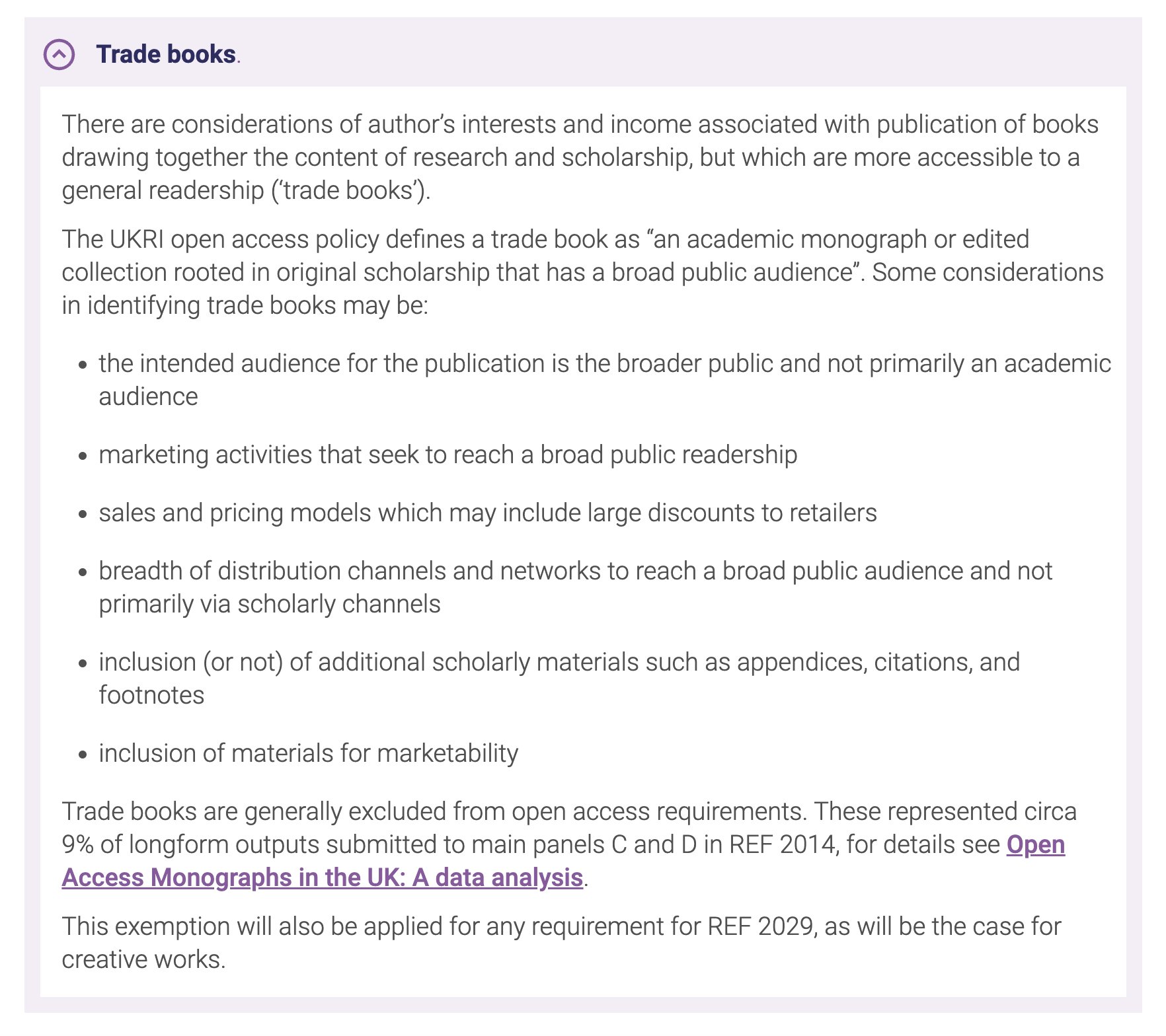Confused and Unprepared
REF29 backtracks on trade books, and TSK bumbles and fumbles a straightfoward issue
Well, if you kick up enough dust and are on faculty, apparently you can get things changed — especially if a policy you object to was created by people who have not done their homework.
Yesterday, I wrote about a proposed REF29 framework that would force staff at universities to release their works OA at various times and in various ways.
There was a lot of controversy around the proposed policies, especially from authors of trade books written for the lay public. These can generate significant revenues for their authors if they hit on the right topic and approach.
That same day, responding to the backlash, REF29 removed an existential threat to these authors’ potential earnings, posting:

As a result of this abrupt 180°, the REF29 team looks confused and unprepared. Did they do no research into their own faculties’ production before dreaming up their framework and promulgating it? Are they so enamored with OA — and so out of touch with or antagonistic towards the commercial publishing space — that they couldn’t have seen this coming?
This echoes most OA policies, which researchers generally find unnecessary and burdensome, while they add complexity, cost, and problems to the information space. And, once again, nobody stopped to think. They simply pursued a simple-minded, bumper sticker-level concept to the extreme.
Now, at least, some authors have won a meaningful concession.
The OA entrenchment at these institutions is quite deep, which suggests this wart of an idea isn’t going to be excised with a simple treatment. A helpful reader shared a letter sent to publishers from universities abiding by the framework, noting that this example is “exactly like others” they’ve received from ~10 other UK academic institutions. The email sender is identified as “Open Access Support” from a signatory affiliated with “Open Research, Libraries & Museums,” suggesting a deep attachment to OA, one that puts OA ahead of libraries and museums. Talk about posturing.


Publishers Remain Confused, Were Unprepared
Meanwhile, on the publishers side, confusion about their existential role reigns, as we see in a recent post on “The Scholarly Kitchen” which explores the well-known-for-a-decade-or-more inability of the public and press (and even researchers) to differentiate between preprints and peer-reviewed articles, as well as Google Scholar’s reckless privileging of preprints in searches.
The answer, according to the Chef?
“More education” for the users.